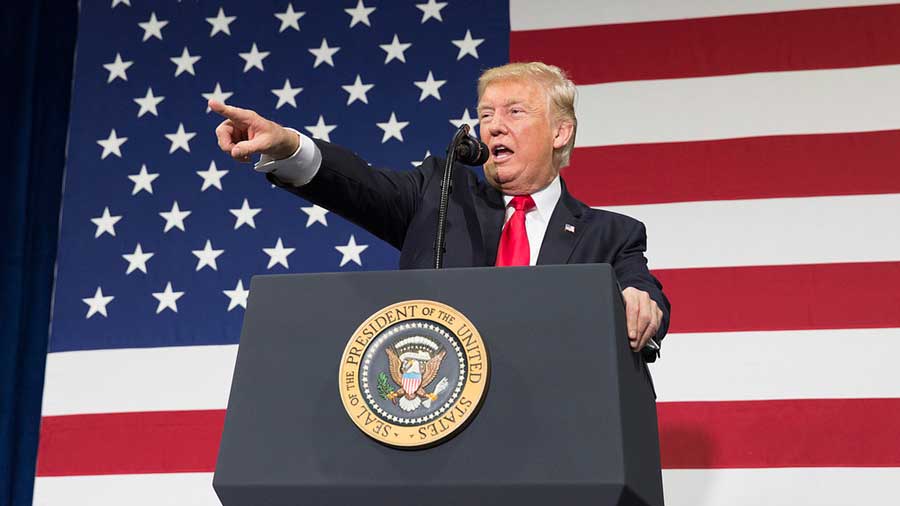Perspective: When Silence Isn’t Golden

The smarter way to stay on top of broadcasting and cable industry. Sign up below
You are now subscribed
Your newsletter sign-up was successful
The Broadcast world was shaken again two weeks ago when President Trump tweeted that he did not like one of NBC’s reports and, therefore, its broadcast licenses should be challenged and possibly revoked.
The President had two goals: first, to bully newsrooms into giving him more favorable coverage; and second, to intimidate his political appointees into following through with point one. The President even suggested his preferred method of retribution — take offending broadcasters off the air by taking away their license. As long as these statements stand, so does the risk to newsrooms.
The message was received. Within hours of the President’s threat to NBC, the stock price of its parent company plunged. Investors saw the power that this administration had to harm a company that upset the President. Without a doubt, the President accomplished his first goal.
When it came to his second goal, all eyes turned to the agency that could make good on the President’s threats — the Federal Communications Commission. The FCC is charged with overseeing broadcast licenses and ensuring they are used for the public interest. But the response from Trump’s FCC chair was … nothing. For nearly a week, the person most responsible for administering broadcast licenses left a chilling cloud hanging over newsrooms.
This silence was untenable. FCC chair Ajit Pai eventually responded, albeit tepidly. When he finally answered the many calls — including mine — that he reassure the public, he merely restated the law. The FCC does not actually have the ability to revoke a license based on a particular newscast.
The chairman is right. The FCC polices licenses to ensure they are used in the public interest. A license can be revoked under commission precedent if, for instance, the holder uses the public’s airwaves to commit a crime. And it should continue that work — if a licensee is guilty of a crime, the FCC should certainly act.
However, that is not the case here and chairman Pai’s statement misses the point. The President was threatening to use the powers of the government to retaliate against journalists for doing their job. His efforts to coerce reporters are quite clear. The question now is how will the FCC respond to those threats?
The smarter way to stay on top of broadcasting and cable industry. Sign up below
At any given time broadcasters have any number of matters in front of the FCC. I am concerned that the agency could potentially use these matters against the companies, and take action outside the view of the public.
Chairman Pai’s defenders say not to worry. Of course the chairman’s fear of the President kept him from speaking, but that’s as far as it goes. We should trust that he can be bullied into silence, but not into action. Unfortunately for news outlets, that is a big bet because if they bet wrong, there will be consequences. And that’s just what the President is hoping reporters will think about the next time they start work on a story about him.
Willingly or not, by refusing to condemn the President’s statements, FCC chairman Pai has become a co-conspirator in the President’s ongoing project to undercut a free press.
Pallone is the Ranking Member of the House Energy and Commerce Committee, and represents the 6th Congressional District of New Jersey.
